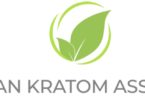By Brittany Wallman,
Sun Sentinel
contact the reporter
Te sale of the herb kratom will continue to be legal in Broward County — for now.
A proposed ban failed at Tuesday’s County Commission meeting, with a majority of commissioners saying they aren’t convinced the naturally growing tree leaves from Southeast Asia are a dangerous drug worthy of regulating.
The ban on the sale or distribution of kratom was proposed by Commissioner Kristin Jacobs, who said it mimics illegal drugs when consumed.
But one by one, her colleagues said more research is needed. Commissioner Stacy Ritter said perhaps the pharmaceutical industry is teaming up with doctors to keep it off the shelves because it competes with prescription drugs.
The Broward medical examiner, Dr. Craig Mallak, said he knows of only one possible kratom-related death in America, a man in Denver.
One other Florida county, Sarasota, regulates the distribution of kratom, but other locales, including Palm Beach County, considered it and put the vote on hold so more study could be done. That’s what Broward commissioners did Tuesday, promising to revisit the vote in coming months.
Commissioners agreed with Albert Balido, a consultant who was involved in fighting other anti-kratom efforts. Balido said it would be best to wait for a definitive University of Mississippi study, before acting.
Jacobs, who’d hoped to pass the measure before she leaves the County Commission to become a state legislator next week, said her colleagues showed a “lack of knowledge” and that Mallak “doesn’t exactly work with live people.” He disputed that.
acobs grew passionate about the proposed ban after the July suicide of a Palm Beach County young man, Ian Mautner, 20.
Mautner jumped from the Southwest 23rd Avenue Interstate 95 overpass. His mother believes his kratom addiction may have contributed to his death, and one of his former neighbors asked commissioners Tuesday to ban it. Mautner also had anti-depressants in his system when he died.
Jacobs implied that her colleagues’ inaction could lead to unnecessary deaths, but Broward Mayor Barbara Sharief sought to squelch that thinking.
She called the medical examiner to the podium and asked him: “Would you say that today, by not banning kratom, are we killing people?”
‘No,” he responded.
Still, due to its “psychotropic and addictive nature,” a county memo says, use of kratom has been banned by the U.S. Army and Navy, and the federal Drug Enforcement Agency placed it on a watch list. In February, the U.S. Food and Drug Administration issued an import alert for kratom that allows the FDA to detain products that contain ingredients found in it.
Commissioners could regulate it much like local governments did bath salts and synthetic marijuana when those products hit convenience store shelves.
Kratom is a tropical tree in the coffee family that’s indigenous to Thailand, Malaysia, Myanmar and other parts of Southeast Asia, according to the DEA. Users buy leaves or powder or pills, to eat or drink it, often as a tea. In small doses, it has a stimulant effect. Higher doses have the opposite effect, the DEA says.
It’s known by other names: Thang, Kakuam, Thom, Ketum and Blak, according to the DEA.
One website suggests mixing it with honey milk or orange juice: “This will put you in a complete kratom trance within an hour,” the website says.
Kratom users told county commissioners Tuesday that the negative hype about the herb is inaccurate, and that they regularly consume it without problems. Meanwhile, former drug addicts, doctors and people in the substance abuse recovery business implored commissioners to ban kratom, saying it’s harder to withdraw from than heroine.
Ritter noted that other substances like tobacco and alcohol are legally available but carry health risks.
“Ice cream is bad if you overindulge. Red meat is bad if you overindulge,” she said. “Some of what we have to do is take some personal responsibility for our actions as well.”
bwallman@tribune.com or 954-356-4541






